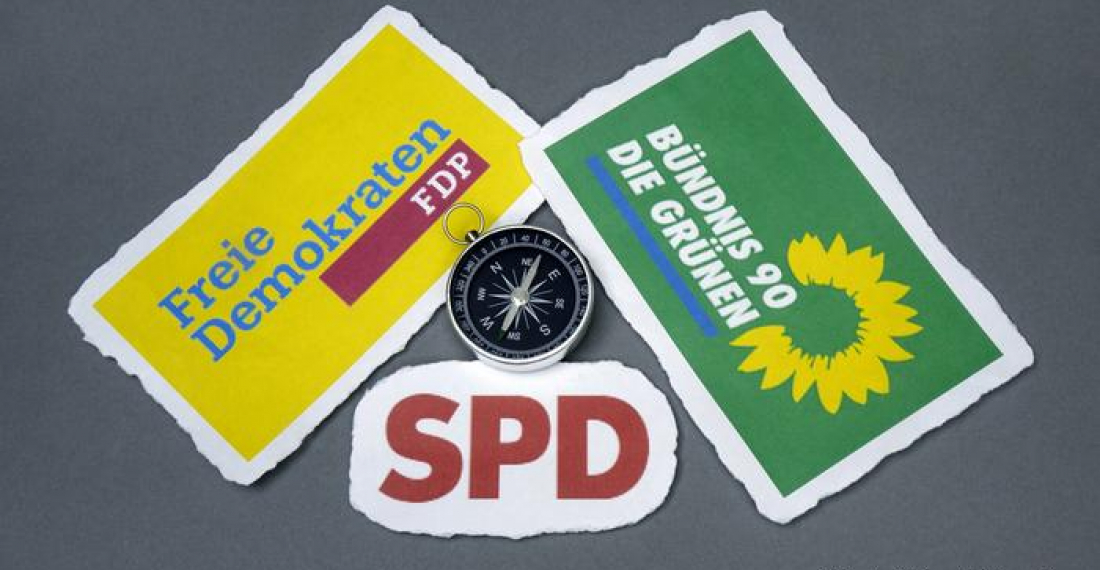Leaders of the three parties set to form Germany’s new government have sealed a coalition deal, which they will present later on Wednesday. The center-left Social Democrats (SPD), who won the September 26 election with Finance Minister Olaf Scholz as their candidate for chancellor, the Greens and the liberal Free Democrats (FDP) will form a three-party government.
A final session of coalition talks kicked off Wednesday morning to put the finishing touches to the deal. Some differences over financial and climate policies and ministerial posts were resolved at overnight talks.
Twenty-one representatives of the three parties — the center-left Social Democrats (SPD), the environmentalist Greens and the business-focused Free Democrats (FDP) — were to meet for concluding negotiations on Wednesday. The parties issued invitations to the press for a mid-afternoon conference where the party leaders would "present the coalition deal negotiated in the previous weeks," as the Greens put it in their invitation.
Any deal must be voted on by party conferences in the case of the SPD and the FDP and by party members in the case of the Greens.
The sources said the parties would like to see Olaf Scholz, the SPD candidate, elected as chancellor by the Bundestag in the second week of December so that the new government can commence its work.
Elections in Germany took place some eight weeks ago. The coalition talks began on October 21.
source: commonspace.eu with agencies






